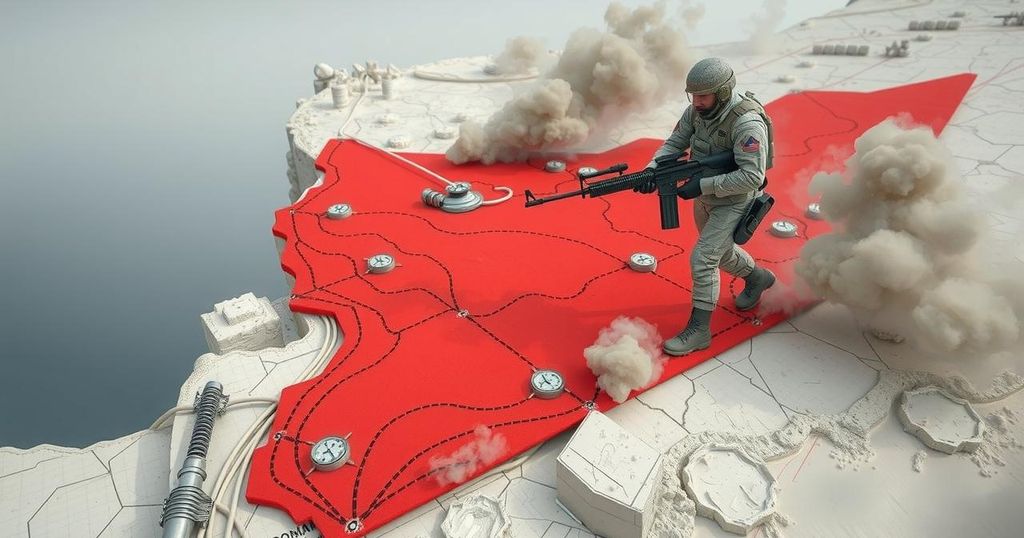Russia Initiates Large-Scale Military Withdrawal from Syria

Russia has begun a significant military withdrawal from Syria following the ouster of Bashar al-Assad. The actions are being observed by US and Western officials, raising questions about the permanence of this withdrawal. This shift could impact Russia’s strategic military presence in the Mediterranean, particularly regarding key bases in Syria and assets being relocated to Libya.
According to US and Western officials, Russia has initiated a significant withdrawal of military equipment and personnel from Syria following the removal of former Syrian President Bashar al-Assad. This large-scale withdrawal commenced last week, but the permanence of these actions remains uncertain. Russian officials are reportedly assessing the willingness of Hayat Tahrir al-Sham, the dominant rebel group in Syria, to negotiate a settlement that would allow Russia to retain access to key bases such as the Khmeimim airbase in Latakia and the port facility at Tartus.
Kremlin spokesperson Dmitry Peskov recently affirmed that Russia is maintaining communication with the rebels controlling the ground situation, emphasizing the importance of these contacts due to Russia’s existing facilities in Syria. Additionally, US officials indicated that Russia is reallocating naval assets from Syria to Libya, increasing their pressure on Libyan National Army commander Khalifa Haftar to affirm Russia’s claim to a port in Benghazi. Losing access to a port in Libya, alongside abandoning Tartus, would significantly impede Russia’s ability to project maritime power in the Mediterranean.
Recent satellite imagery has revealed preparations for the removal of Russian military aircraft and equipment from bases in Syria, including the dismantling of a Ka-52 attack helicopter and the packing of S-400 air defense system components. Furthermore, US Secretary of State Antony Blinken refrained from commenting specifically on the matter, while Pentagon Press Secretary Major General Patrick Ryder noted that the withdrawal of Russian air defense capabilities has allowed US forces to conduct anti-ISIS operations more freely in the region.
The US Central Command has undertaken several targeted airstrikes against ISIS positions in Syria since the ouster of Assad, enjoying an improved operational environment due to decreased threats from Russian defenses.
The context of this withdrawal involves Russia’s military presence in Syria, which was initially bolstered to support the Assad regime against various rebel factions, including groups like Hayat Tahrir al-Sham. The recent political dynamics have led to a reassessment of Russia’s strategic interests in the region, influenced by the shift in power dynamics and its implications for security and military operations. The potential loss of naval and air capacities could impact Russia’s geopolitical standing in the Mediterranean and its ability to support allied operations in surrounding regions.
In conclusion, the recent large-scale withdrawal of Russian troops and equipment from Syria reflects a significant shift in the military landscape following the fall of Bashar al-Assad. As Russia navigates its relations with rebel forces and other geopolitical interests, the implications of this withdrawal extend beyond Syria, impacting Moscow’s strategic foothold in the Mediterranean and their operational capabilities against groups like ISIS.
Original Source: www.cnn.com






